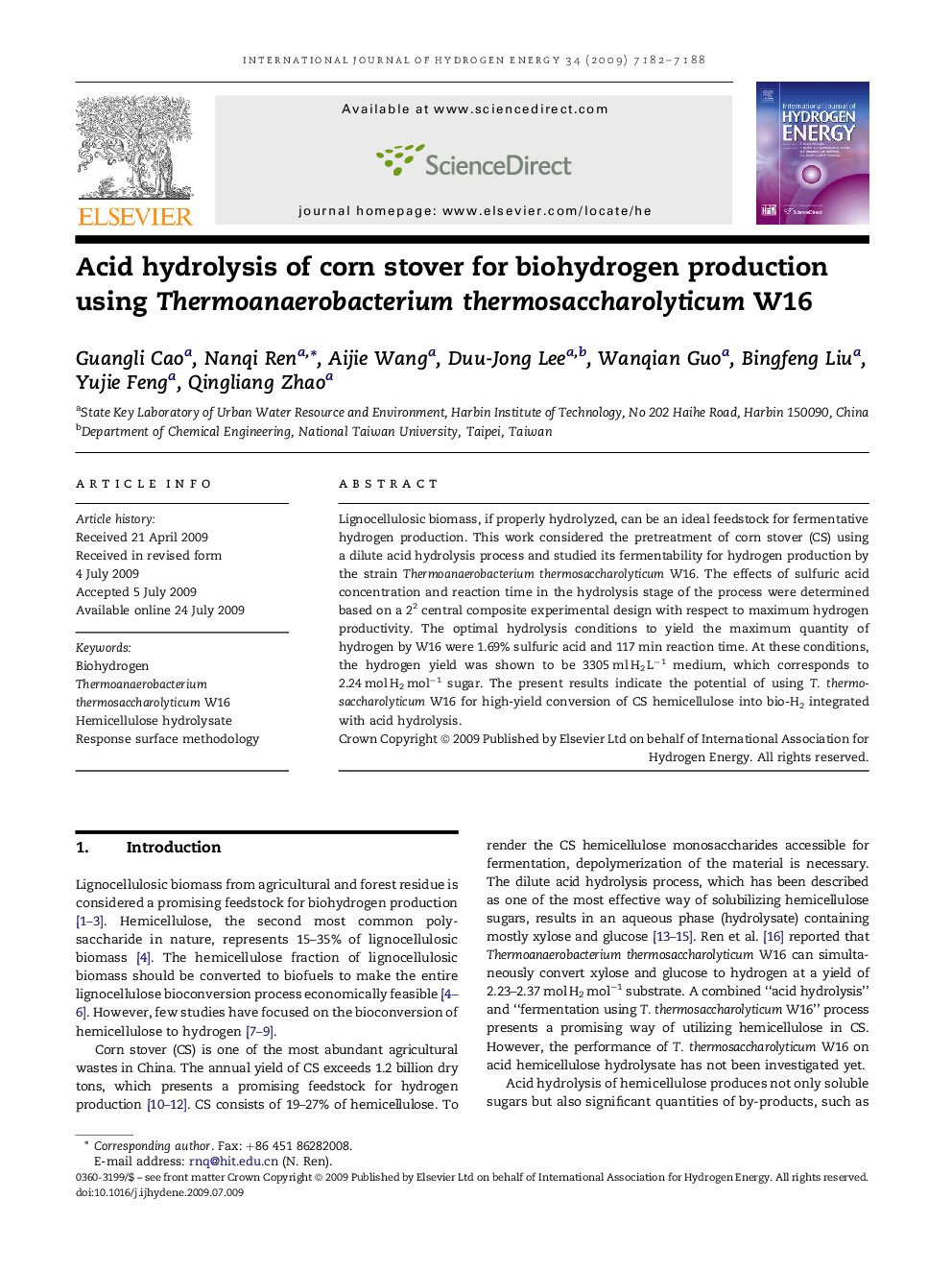| Article ID | Journal | Published Year | Pages | File Type |
|---|---|---|---|---|
| 1281103 | International Journal of Hydrogen Energy | 2009 | 7 Pages |
Lignocellulosic biomass, if properly hydrolyzed, can be an ideal feedstock for fermentative hydrogen production. This work considered the pretreatment of corn stover (CS) using a dilute acid hydrolysis process and studied its fermentability for hydrogen production by the strain Thermoanaerobacterium thermosaccharolyticum W16. The effects of sulfuric acid concentration and reaction time in the hydrolysis stage of the process were determined based on a 22 central composite experimental design with respect to maximum hydrogen productivity. The optimal hydrolysis conditions to yield the maximum quantity of hydrogen by W16 were 1.69% sulfuric acid and 117 min reaction time. At these conditions, the hydrogen yield was shown to be 3305 ml H2 L−1 medium, which corresponds to 2.24 mol H2 mol−1 sugar. The present results indicate the potential of using T. thermosaccharolyticum W16 for high-yield conversion of CS hemicellulose into bio-H2 integrated with acid hydrolysis.
